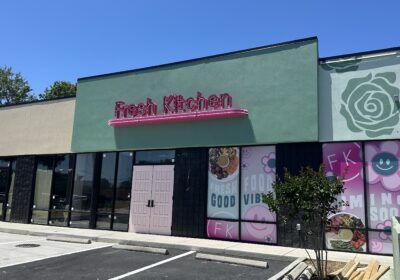CNN to host Tea Party Debate in Tampa
What started as a grassroots political movement will now be running a presidential debate among Republican contenders, as CNN and the Tea Party Express host the first-ever Tea Party Debate today in Tampa.
The debate, moderated by Wolf Blitzer, begins at 8 p.m. today at the Florida State Fairgrounds and airs on CNN from 8 p.m. to 10 p.m.
Rep. Michele Bachmann (R-Minn.), Rep. Ron Paul (R-Texas), T exas Gov. Rick Perry, former Massachusetts Gov. Mitt Romney, former Utah Gov. Jon Huntsman, former Pennsylvania Sen. Rick Santorum, former House of Representatives speaker Newt Gingrich and Herman Cain will all attend, according to CNN.
The tea party, a movement of Americans who aim to limit federal government and return political power to the states and the people, according to theteaparty.net, has been a polarizing political force since its initial protests in 2009. Yet, USF political science professor Susan MacManus said its views might be more mainstream than some believe.
“It’s very interesting that people very quickly forget that there was a lot of push for change and doing things differently when George (W.) Bush was president, and a lot of the activists and the high turnout vote for Obama was among people who wanted something different out of government,” said MacManus, who will serve as an analyst during the debate. “These days a lot of people have disdain for political parties, whether it’s Democrat, Republican or ‘the tea party,’ but the polls show that there are mixed opinions about the components of the tea party’s platform.”
Fox News reported earlier this month that an Associated Press/Gfk poll found that 46 percent of Americans “views the tea party negatively” while 28 percent view it favorably. However, MacManus said a majority of polls show that Americans want the government to cut back on spending, balance budgets and reduce the national debt – platforms of the tea party movement.
“It’s a classic example of where a label, if used, can alienate people,” she said. “But if you disaggregate what the label stands for, you may find sympathy for specific elements.”
While USF political science professor Steven Tauber said the tea party will be influential in the Republican nomination battle, he said he believes it won’t have much influence in the general election – representing “maybe about 20 to 30 percent” of American voters.
“Tea partiers’ over-the-top, incendiary rhetoric and extreme views – especially on social security and Medicare – alienate moderate and independent voters,” he said. “A perfect example is in the state of Florida, where the tea party loves Gov. Rick Scott, but the rest of the state does not like him at all … In fact, given President (Barack) Obama’s subpar approval rating in Florida, his best chance to win Florida rests more with Democrats’ ability to tie the Republican nominee to Rick Scott than with any other strategy because Scott and the tea party are more unpopular than Obama is.”
MacManus said she thinks there is more conservatism on college campuses now than during the 2008 elections, possibly because of the state of the economy.
According to Tea Party Express, the USF Tea Party/9-12 Organization is co-sponsoring the debate, and members of the group and the College of Democrats say they plan on attending the debate or watching from home to narrow down their opinions of the potential candidates.
Corey Uhl, a member of the USF branch of Students for a Democratic Society, said around 12 other members will join protesters from Awake the State, Fight Back Florida and the electrical workers union in a demonstration near the fairground’s Martin Luther King Jr. Boulevard entrance on the day of the debate.
“Basically the tea party and the Republicans represent corporate personhood, which (we) would like to end, as well as the budget cuts, which at least should start from the top down rather than the bottom up,” said Uhl, a senior majoring in history.
MacManus said the debate, which will include audience and Twitter questions, could prove a turning point in the state settling on a Republican presidential candidate.
“A lot of the polls I look at show that Florida Republicans haven’t really jelled their support behind any of these candidates,” she said. “I think this debate and a lot of the news coverage that will emanate from it will help whittle down the field among Florida GOP voters, who will likely be voters in the primary.”
Yet Tauber said he thinks that “unless a candidate makes a major gaffe and ruins his or her campaign,” the debate will be meaningless in the long run.
“There are many debates in what has become an increasingly longer presidential election,” he said. “Remember what a big deal everyone made during the Iowa debate and Ames Straw Poll. One month later, nobody cares about that anymore.”
MacManus said the election will ultimately come down to candidates’ individual economic policies and whether they provide specific solutions for “turning the economy around.”
Florida leads the nation in home foreclosure rates and has a 10.7 percent unemployment rate, compared to the national average 9.1 percent, according to the U.S. Bureau of Labor Statistics.
“The economy is a much more urgent issue in Florida,” she said. “People are now wanting more specific ideas, and with so many candidates on the same stage, they’ve really got to start distinguishing themselves from each other.”
The Tea Party Debate is the first of three Republican debates that will be held in Florida, culminating in a Sept. 24 straw poll in Orlando. Tampa will also be the site of the 2012 Republican National Convention.






